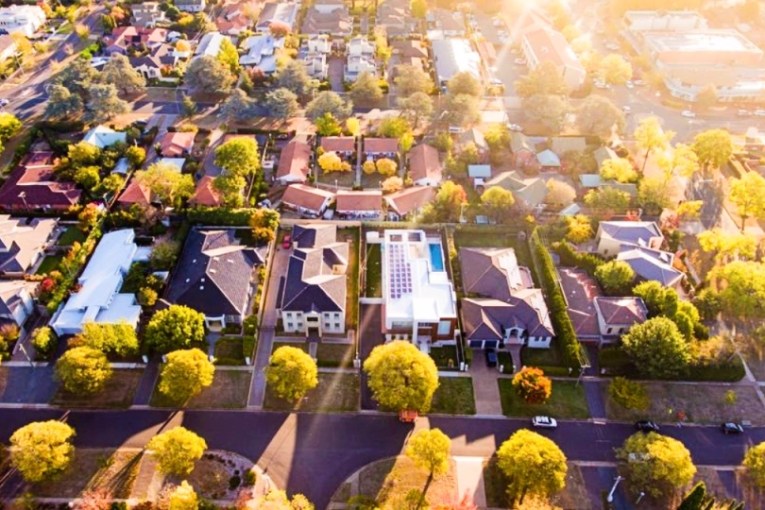Political parties may know a lot more about you than you think

All political parties collect information to help them target voters. Photo: ABC News
As Australian political parties prepare for three big elections in the next six months, they are adopting sophisticated ‘big data’ crunching techniques to target voters.
Using information from third-party data brokers, cross-referenced with Census data and the electoral roll, parties are able to build sophisticated models of how people will vote.
On the eve of the Victorian state election and in the lead up to the NSW and federal elections, 7.30 investigated modern campaigning and the role big data plays.
And it’s all perfectly legal.
Creating a ‘really scary’ data picture

Brigid Cottrill was surprised to learn how much information about her political parties may already have. Photo: ABC News
Brigid Cottrill is an undecided voter living in Melbourne.
7.30 analysed the type of picture an interested political party could potentially build up about her, based on legally available data.
They start with her name, address and age, obtained through the electoral roll.
They can then predict her views on tax policy because they know her estimated credit score and income, based on where she lives.
She’s likely to be interested in childcare policy because she entered a kids’ furniture competition and the company can share that data.
And Labor knows she liked one of their posts on Facebook.
Ms Cottrill found the results alarming.
“I think that’s actually really scary,” she told 7.30.
“I want to be able to make a choice for who I vote for based on my beliefs and I don’t want to be targeted by things that they think that I want to hear, as opposed to information that I can gather myself.”
Complex web of data bought and sold

Surveys are just one method of collecting data on voters and consumers. Photo: ABC News
Data brokerage firms offer slabs of segmented consumer data which can be used for political campaigning, but it is the sources of their data collection that may surprise some voters.
Anonymised consumer data can include responses to surveys, phone polling, loyalty card schemes, credit score information, competition entries and social media profiles.
These are all able to be aggregated into sophisticated data sets for advertisers, or political parties wanting an edge.
The process is known as segmentation and is all in the fine print when you sign up for these services.
When this data is cross-matched with other demographics, such as age, gender and location, you can model a powerful picture of potential voter trends.
Who uses what?
The Liberal Party in Victoria has reportedly adopted the use of i360 – political campaigning software from the US that has been used successfully in a number of Republican Party campaigns, and boasts it holds data on 199 million US voters.
The party declined to answer any questions about i360, and i360 didn’t respond to several approaches from 7.30.
The Liberal Party in South Australia also used this software in its state election win earlier this year.
In SA Labor’s post-election analysis, it conceded i360 was a factor in the election result in that state.
According to electoral commission documents, the South Australian Liberal Party paid almost $200,000 for the i360 service.
The ALP uses its own in-house software, Campaign Central, to help target voters.
The ALP declined to answer any of 7.30‘s detailed questions about its use of voter software or whether it uses consumer data.
“Our campaign is focused on talking to Victorians about the things that matter to them,” a spokesman said in a statement.
The Greens use an in-house data platform called GVIRS but say they do not buy in any data.
Greens campaign director Michael Poland says political parties should not be buying in data.
“We’re really concerned that not only do the Liberals and Labor Party continually weaken our privacy laws, but there are increasing reports of them using data like consumer data to try and influence elections,” Mr Poland said.
Privacy concerns over data digging

Tim Singleton Norton says consumers are being tricked into providing personal data. Photo: ABC News
Digital Rights Watch advocate Tim Singleton Norton says political parties should not be exempt from the Privacy Act.
“I think the main concern is that political parties are exempt from the Privacy Act,” he said.
“They are not beholden to the same rules that other people are in terms of whether or not they are respecting and protecting individual data or information they have about Australian citizens.”
Mr Singleton Norton believes consumers are being tricked into providing their personal data, through complex user agreements for things like rewards cards, without realising where their data may end up.
“Everything that goes into these data troves is, in theory, acquired with informed consent, i.e. you’ve scrolled through 17 pages of terms and conditions and you click ‘accept’,” he said.
“Now, that’s part of the problem. The emphasis is on the consumer. And the consumer has to be educated, has to be informed, and understand what they are giving away.”
Big data ‘going to be terrifying’

Political strategist Toby Ralph says the use of big data in politics is still developing. Photo: ABC News
Data scientist and Obama 2012 director of digital analytics Amelia Showalter said while big data was being touted as the next big thing in political campaigning, that view must be tempered with what it can actually achieve.
“Having models about each voter and trying to estimate which way they are likely to vote, one way or another, is helpful to us maybe only in a couple of percentage points,” she said.
“So it’s not something that can drastically change the race, but in a really close race maybe it’s something that can make the difference.”
Veteran political strategist Toby Ralph said while the technology was relatively new, it would continue to grow and become more important to political campaigning.
“It’s in its infancy,” he said.
“It’s kind of Mike Tyson as a toddler. He’s irritating now, but he’s going to be terrifying later.”
–ABC







